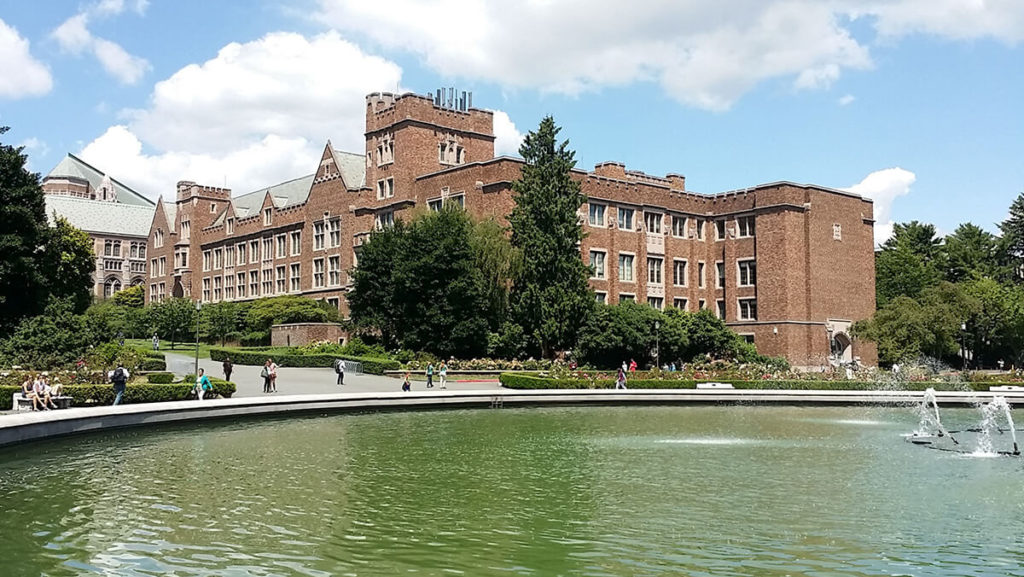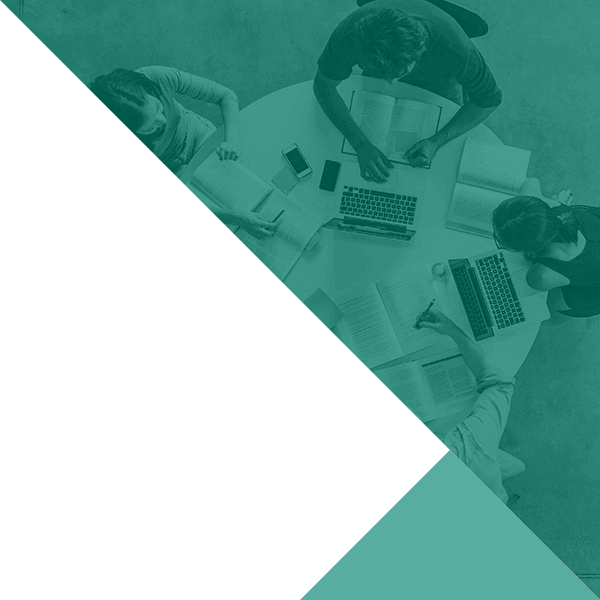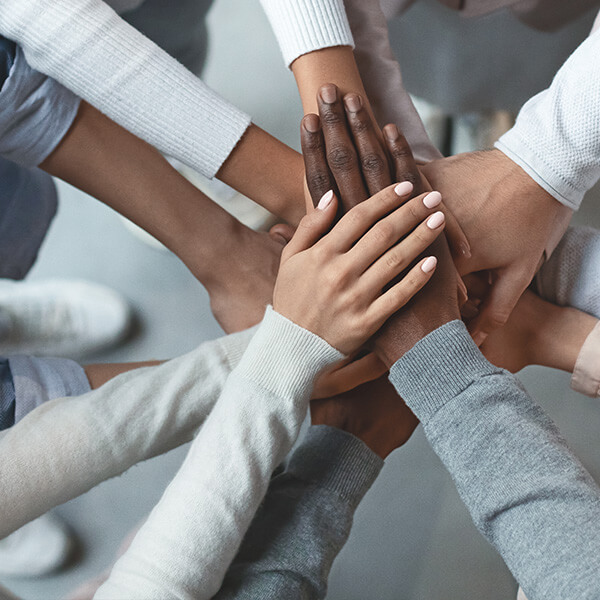1.0 Partnership Overview
The collaboration between UW Bothell and Pacific Science Center — which spans nearly a decade — extends beyond specific programs and the research that fuels them. United by a passion for innovation and equity, the two institutions join forces to create science-based experiences that touch the entire community. In 2020, the Carnegie Foundation recognized the UW Bothell for its community engagement — collaborations with outside partners that lead to the mutually beneficial exchange of knowledge and resources. The national recognition is for institutions doing exceptional work that enriches teaching and research while also benefiting the broader community. The longstanding partnership between UW Bothell and Pacific Science Center was emphasized in the Carnegie Foundation application and featured in the UW Bothell Magazine.
2.0 Reflections from the Partnership
How have you worked to understand each other? When did you struggle or fail to understand one another? How did you navigate the culture and language code-switching necessary to work across organizations? How did you establish clarity around goals, timelines and roles? How did you build trust within the partnership?
Pre-existing relationships in the UWB-PSC partnership set the stage for the BID work. When the BID project began, Pacific Science Center already had established a years-long history working with UW Bothell researchers through its Portal to the Public program and through collaborations with UWB researchers working in science education (Carrie Tzou and her robotics backpacks program), environmental education (LWWIP), and chemistry education (Charity Lovitt working with Discovery Corps youth). These partnerships were initiated and maintained by the individual faculty members. The BID Co-PI at UWB decided to anchor the project in the UWB Office of Research (UWBOR) which serves faculty of all disciplines. Since all proposals are submitted through the Office of Research, the Co-PI there could recruit PIs throughout the university for the BID work. The UWB-PSC BID team members decided to offer PIs three services: 1) the opportunity for each PI to construct their personal BI Legacy Narrative, 2) the development of a BI menu for each PI, and 3) Portal to the Public training for each PI and their collaborators. Building on the relationship between UWBOR staff and PSC staff, we constructed a generic menu of BI programs in which PIs could participate and which the BID team could customize to each PI’s strengths and abilities. Because the BID team representative from PSC was also a Portal to the Public trainer, she was accustomed to understanding the context and constraints of university-based work and bridging that to ISI work. The UWB BID team representative had worked at PSC before coming to UWB, so she understood the context and constraints of museum-based work. This familiarity with one another’s institutional contexts enhanced the trust that existed at the beginning of the BID project, catalyzed a deeper shared understanding of how to work together with PIs, and sharpened the focus of the BI options and plans created with each PI. Taken together, the aforementioned affordances allowed the UWBOR-PSC duo to engage in more direct and unreserved conversations with PIs, taking into account the PI’s abilities to interact with audiences and the support the BID team recommended writing into their proposals to optimize each PI’s BI impact. Both members of the duo code-switched effectively with each PI, whether the PI was an inexperienced BI provider (Hung Cao) or an expert science communicator (Joey Key). The UWBOR-PSC pair learned, along with interested PIs, the Broader Impact Legacy Narrative protocol, which was delivered by its developer, Dr. Julie Risien. Again, their trusting relationship allowed the two to absorb this new information and process it individually, then talk about how best to use it to support PIs in their growth as researchers. After three years of BID work, the BID tools on which the UWB-PSC partnership focused are embedded into Office of Research Services that are offered not only to researchers submitting proposals to NSF, but to researchers submitting to other funders in both STEM and non-STEM disciplines. The menu of BI activities offered to UWB researchers by PSC has grown beyond what was developed at the beginning of the BID project and capitalizes on revenue-generating activities for both institutions (summer camps). This UWB-PSC menu of BI experiences has been tested over time and, through many instances of success interspersed with challenges that were addressed together, has come to be relied upon by multiple researchers, whether funded by NSF or not. This UWB-PSC partnership has become an exemplar for those faculty and staff who seek to develop other UWB community partnerships. It was highlighted in UWB’s successful application for a Community Engagement Classification designation from the Carnegie Foundation and featured in UWB’s Winter/Spring 2020 Magazine (https://www.uwb.edu/getattachment/uw-bothell-magazine/archive/winter-spring-2020/UW-Bothell-Magazine-Winter-Spring-2020-Accessible.pdf?lang=en-US). The pre-existing partnership between both institutions has been enhanced by the BID work and continues to provide growth opportunities for UWB researchers and PSC audiences.
What indicators have you observed that the work is becoming institutionalized, through engagement of leadership, additional staff, succession planning, and new policies, procedures or routines that support sustained partnership? How have you navigated the balance between nurturing individual relationships with the desire to create systems/institutionalize? How has the team navigated the issues that arise from job changes and turnover?
Staff turnover in both institutions has been a challenge for institutionalizing this work throughout the course of this project. With each change in leadership, the BID representatives chose to enroll the new decision-maker in the BID work, as well as re-enroll that person’s direct reports and peers. While it is obvious that new employees need to be introduced to the project and their support enlisted, the need to re-enlist the support of those who are already supportive is not so obvious. In both institutions, many of the PIs (IHE) and program managers (ISI) work independently of their peers and report to those who are new to the organization. The BID team felt it was necessary to gain and/or maintain the support of all the people in the BID participant’s reporting chain in order to safeguard against project knowledge and experience being lost in future employee turnovers as well as to progress toward the institutionalization of the work. The enrolling conversations with new employees are usually planned for that purpose, though they may be one agenda item among others in an introductory meeting. The re-enrolling conversations for those already participating in the BID work often occur in the course of commonplace interactions, rather than in meetings specifically devoted to that purpose. During the last funded year of this project, the PSC representative changed roles within the institution and is no longer working on this project. She was not immediately replaced, and with the closure of PSC due to COVID-19, she will not be replaced before this funding period ends. The relationships between UWB employees and PSC employees that have been built and maintained before and during the funding period (see the previous vignette) enable the BID work to continue during and hopefully after the COVID-19 disruption. In other words, the relationship capital has been adequately distributed within PSC. During the same timeframe, the UWB representative’s hours have been reduced. She is able to continue the BID work at the current level during the final year of funding, though her continued level of effort beyond the funding period is still uncertain. She is working to maximize and further distribute the relationship capital within UWB so that the BID work is institutionalized in BOTH places independent of both BID representatives.



